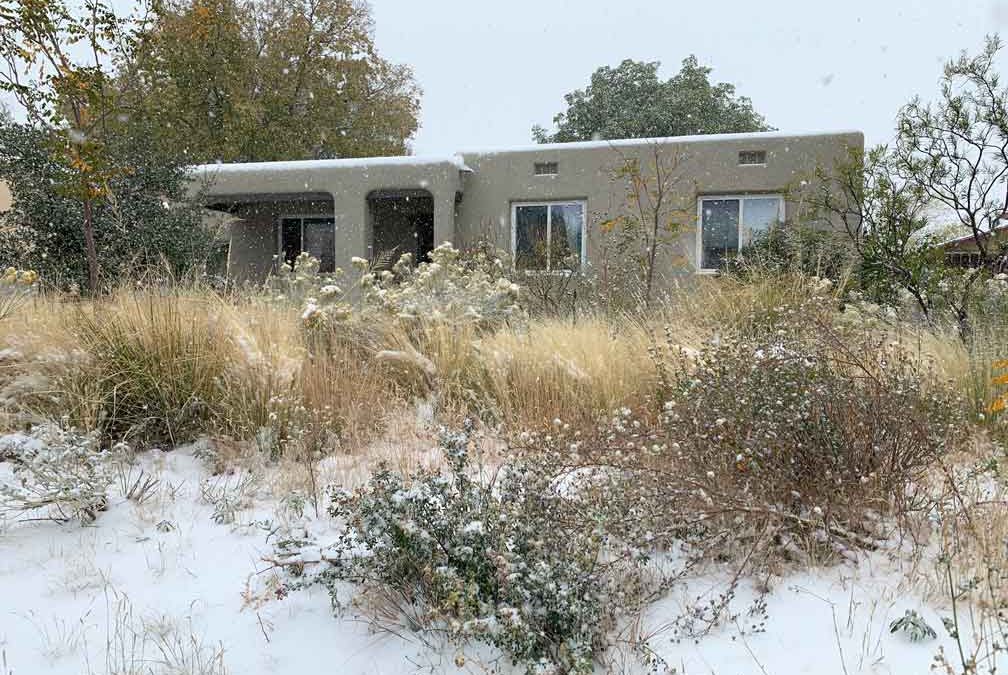Just as we take shelter when the weather turns colder, so do your plants. This time of year, plants store most of their nutrients in the roots and find shelter in the ground. We can support this transition to help plants thrive during the entire winter season.
Also, it is time to give your irrigation system a rest. The recent storm brought much-needed precipitation and along with the snow came freezing temperatures. To avoid damage to your irrigation system we recommend setting it to the OFF position. Your next step will be to wait for a warm day, to deeply water one more time and then take steps to winterize your irrigation system.
Follow this advice to ensure landscape success:
How much should I water this November?
- 1-2 more times this month
- Give individual trees 100 gallons to a depth of 24”
- Skip watering if it rains or snows
- Water turf to ½ inch, 7-10 minutes
- Your outdoor water usage should be 80% less than in the summer season
How can I keep my landscape healthy this winter season?
Turf
- Mow your lawn to 2-2.5 inches. Grass left too long over the winter can develop brown patches.
- Aerate next time it is warm. Aerating your lawn will give it a chance to breathe before the grass goes completely dormant. This also provides relief of any compaction that has built up during the warmer months.
- Rake or blow off the leaves that have fallen on your lawn. Leaves that are left on the lawn could become moldy, which invites disease.
- Top dress with compost. Compost acts as a fertilizer, adds moisture retention capacity, and improves overall turf health.
Trees
- Apply a thin layer of compost, about ½ inch, to provide nutrients.
- Add mulch away from the trunk base, about 2 inches thick. Mulch helps maintain your ground at a constant temperature and helps retain moisture.
- Water your trees thoroughly once a month, if needed, to support your plants’ winter hardiness. Withholding water will not aid the plant in acclimating itself to winter.
How do I avoid irrigation and other plumbing system damage? To avoid costly repairs, we recommend that homeowners take the following steps:
- Find the master shutoff valve.
The master shutoff valve turns off the water to the entire house. If you have one, learn its location. This could be critical if a pipe should burst. Need an emergency turn-off? Call 842-WATR and select Option 1. - Insulate pipes and faucets in unheated areas.
Wrap exposed water pipes in unheated areas (such as a garage, basement, crawl space, or space beneath your mobile home) with insulation or heat tape. Be sure to follow the manufacturer’s instructions carefully. - Seal off access doors, air vents, and cracks.
Winter winds whistling through overlooked openings can quickly freeze exposed water pipes. DO NOT plug air vents used by your furnace or water heater.


